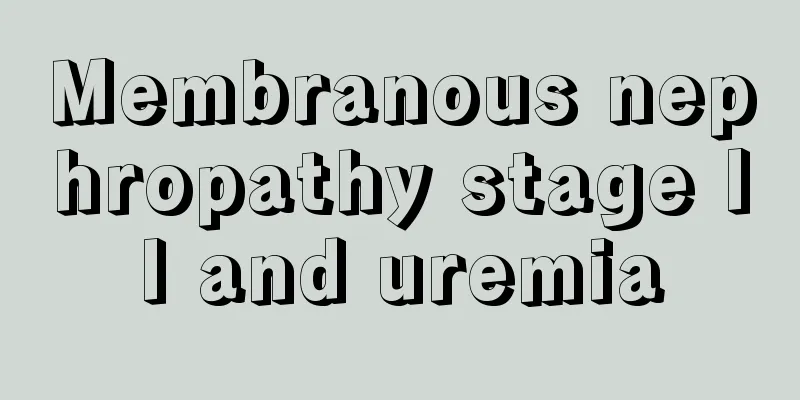Is renal hamartoma dangerous?

|
Renal hamartomas are usually benign tumors with low risk, but in a few cases they may cause complications, and the risk needs to be assessed based on the specific situation. The main risks include tumor enlargement, rupture and bleeding, or compression of surrounding tissues. Treatment methods include observation, drug therapy, and surgical intervention. 1. Dangers of renal hamartoma Renal hamartoma is a common benign tumor of the kidney, mainly composed of fat, blood vessels and smooth muscle. Most patients have no obvious symptoms and are usually discovered accidentally during a physical examination. Although most renal hamartomas are benign, they may pose risks in some cases. For example, when the tumor is large, it may compress the kidneys or surrounding organs, causing pain or dysfunction. The tumor is rich in blood vessels and may cause bleeding due to external force or spontaneous rupture, which can be life-threatening in severe cases. In rare cases, renal hamartomas may be associated with genetic diseases such as tuberous sclerosis, which require closer monitoring. 2. Treatment of renal hamartoma For asymptomatic and small renal hamartomas, regular observation is usually recommended, with imaging tests such as ultrasound, CT, or MRI to monitor tumor changes. If the tumor increases or symptoms occur, further treatment should be considered. Drug treatment: For renal hamartomas associated with tuberous sclerosis complex, mTOR inhibitors such as everolimus can be used to control tumor growth. Interventional treatment: For patients with tumor rupture and bleeding, arterial embolization can be used to stop bleeding and reduce surgical risks. Surgery: When the tumor is large, usually more than 4 cm, or causes severe symptoms, surgical removal may be considered. The surgical method includes partial nephrectomy or complete nephrectomy, and the specific choice depends on the location of the tumor and the patient's kidney function. 3. Daily management and prevention Although renal hamartoma cannot be completely prevented, a healthy lifestyle can help reduce the risk of the disease. It is recommended to maintain a balanced diet, reduce the intake of high-fat and high-salt foods, and increase the proportion of vegetables and fruits. Moderate exercise such as brisk walking and swimming can help enhance immunity and improve overall health. Avoid strenuous exercise or abdominal trauma to reduce the risk of tumor rupture. Although most renal hamartomas are benign, a personalized treatment plan is still needed based on the size of the tumor, symptoms, and specific patient conditions. Regular physical examinations and imaging examinations are the key to early detection and management. If symptoms such as low back pain, hematuria, or abdominal masses occur, seek medical attention promptly to avoid delaying treatment. Through scientific treatment and a healthy lifestyle, most patients can maintain a good quality of life. |
<<: How long can you live after mid-term breast cancer surgery
>>: The three most feared symptoms of bladder cancer
Recommend
Be careful of cervical cancer during artificial abortion. What are the daily prevention methods for cervical cancer?
Cervical cancer is the most common gynecological ...
Blisters inside lips_What to do if blisters on lips break
Diet has a great impact on our body. First of all...
What is the correct way to do prenatal education?
With the development of society, the level of edu...
Is 400 degrees of myopia serious?
Myopia is a topic that people are very concerned ...
Can kidney cancer be transmitted to others?
People's living standards have improved a lot...
Why is there a pressure feeling in my right eye?
Because the eyes are an organ exposed to the outs...
Is wine considered food?
Alcohol is a common drink in people's daily l...
What is the cause of eye pain
In fact, in life, it is common for human eyes to ...
How do you get prostate cancer
How is prostate cancer caused? Generally speaking...
What color quilt is suitable for sleeping?
The pace of development in today's society is...
What vegetables are suitable for colorectal cancer? Dietary considerations for colorectal cancer
Generally speaking, most fresh vegetables are sui...
How to remove chicken skin on arms, four tricks to solve the trouble
The phenomenon of egg yolk skin can occur in any ...
What is the sign of numbness on the tip of the tongue at the age of 47
Numbness at the tip of the tongue is a problem th...
What is the best treatment for advanced bile duct cancer?
What is the best treatment for advanced bile duct...
Why does it still hurt when my uric acid level is normal?
Uric acid is a product of the body's normal m...









